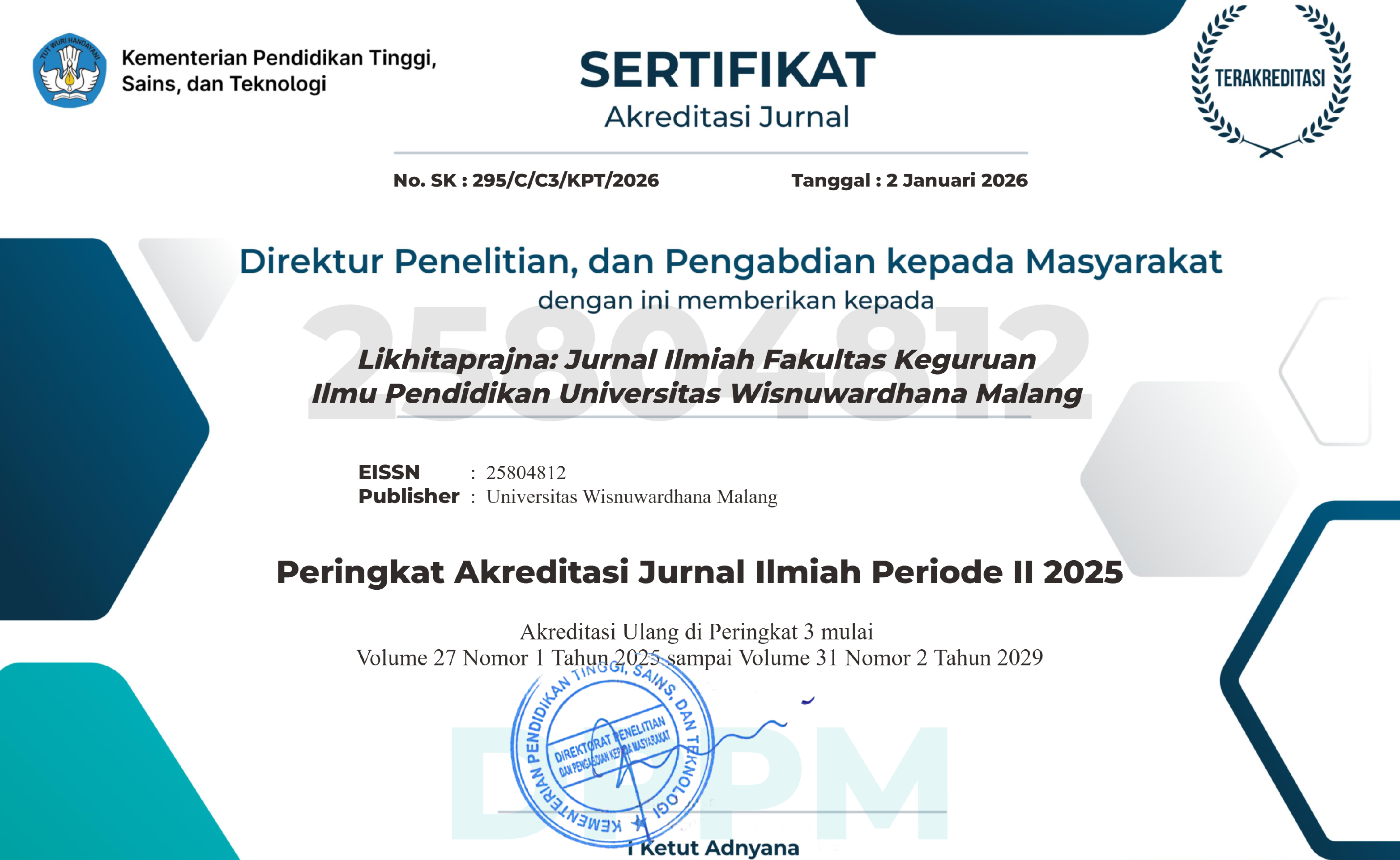Implementasi Program Sekolah Sehat dan Bersih melalui Kegiatan Lingkungan berbasis Partisipatif di SDN 2 Candirenggo Kecamatan Singosari Kabupaten Malang
Abstract
The purposes of this study were to find out, analyze and describe: (1) the school's strategy for achieving healthy and clean schools, (2) the implementation of healthy and clean school programs through participatory-based environmental activities in schools, (3) how environmental activity programs are based participatory activities carried out by school members in supporting healthy and clean schools, (4) How is the participatory-based environmental activity program carried out with the community in supporting clean and healthy schools.. This type of research is qualitative research. The subjects of research were school principals, staff, teachers, and students. Data collection techniques are interviews and documentation. The results of the study show that: (1) The strategy adopted to achieve healthy and clean schools is to plan and socialize to residents and foster a shared commitment to achieving goals, (2) Implementation of healthy and clean school programs through participatory-based environmental activities in the form of healthy and clean school program activities given to students, teachers, staff, school members and the community, (3) participatory-based environmental activity programs carried out are clean Friday activities, integrated classroom learning with a healthy and clean school environment, and environment-based extracurricular activities, and (4) Participatory-based environmental activity programs carried out with the community, Student Parents' Association and Committees by establishing and maintaining school parks, as well as prohibiting littering.
References
Adlini, M.N., Dinda, A.H., Yulinda, S., Chotimah, O., & Merliyana, S.J. 2021. Metode Penelitian Kualitatif Studi Pustaka. Jurnal Edumaspul, 6 (1), 974-980. https://ummaspul.e-journal.id/maspuljr/article/download/3394/1177/
Dermawan, M.K. 2009. Perilaku Merusak Lingkungan Hidup: Perspektif Individu, Organisasi Dan Institusional. Jurnal Legisiasi Indonesia. Vol. 6 (1), 72-102. https://e-jurnal.peraturan.go.id/index.php/jli/article/viewFile/312/197
Depkes RI, 2009, Pembinaan Perilaku Hidup Bersih dan Sehat di Berbagai Tatanan, Depkes RI, Jakarta.
Fadli, M.R. 2021. Memahami desain metode penelitian kualitatif. Humanika, Kajian Ilmiah Mata Kuliah Umum, Vol. 21 (1),33-54. https://journal.uny.ac.id/index.php/humanika/article/download/38075/pdf_1
Istiana, R., Islamiah. N.I., Sutji &hati, S. 2018. Partisipasi Siswa Terhadap Pelestarian Lingkungan Ditinjau Dari Persepsi Tentang Sekolah Berbudaya Lingkunga. Jurnal Pendidikan Lingkungan dan Pembangunan Berkelanjutan. Vol, 19 (2), 15-26. http://doi.org/10.21009/PLPB.192.02
Sugiyono. 2017. Metode Penelitian Kuantitatif, Kualitatif, dan R&D. Bandung: Alfabeta, CV.
Penulis yang menerbitkan karya ilmiahnya di Likhitaprajna setuju dengan ketentuan berikut: manuskrip yang diajukan dan dipublikasikan tetap menjadi hak publikasi penulis dengan karya yang dilisensikan secara bersamaan di bawah Lisensi Internasional Creative Commons Attribution-ShareAlike 4.0.
This work is licensed under a Creative Commons Attribution-ShareAlike 4.0 International License.



